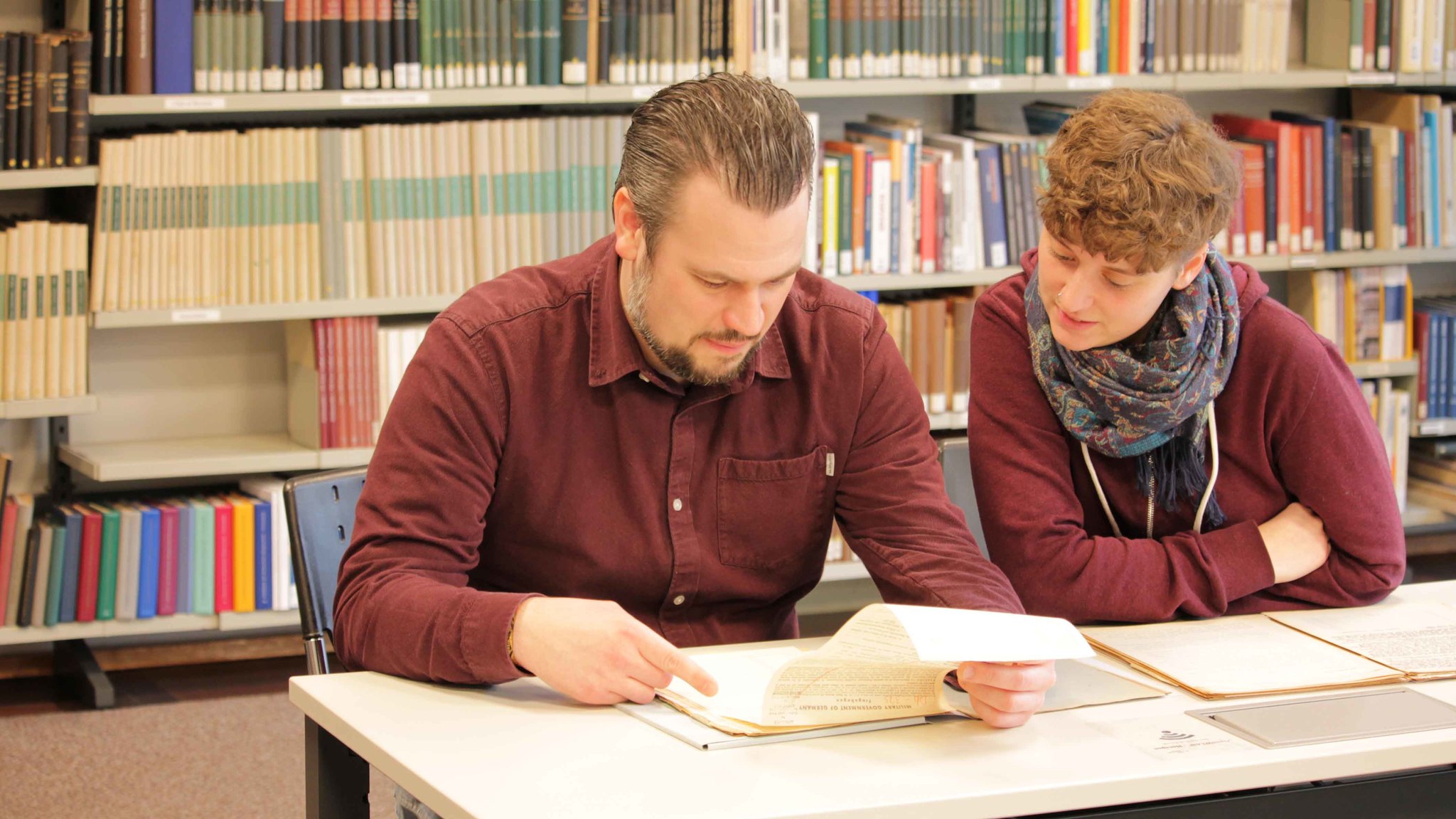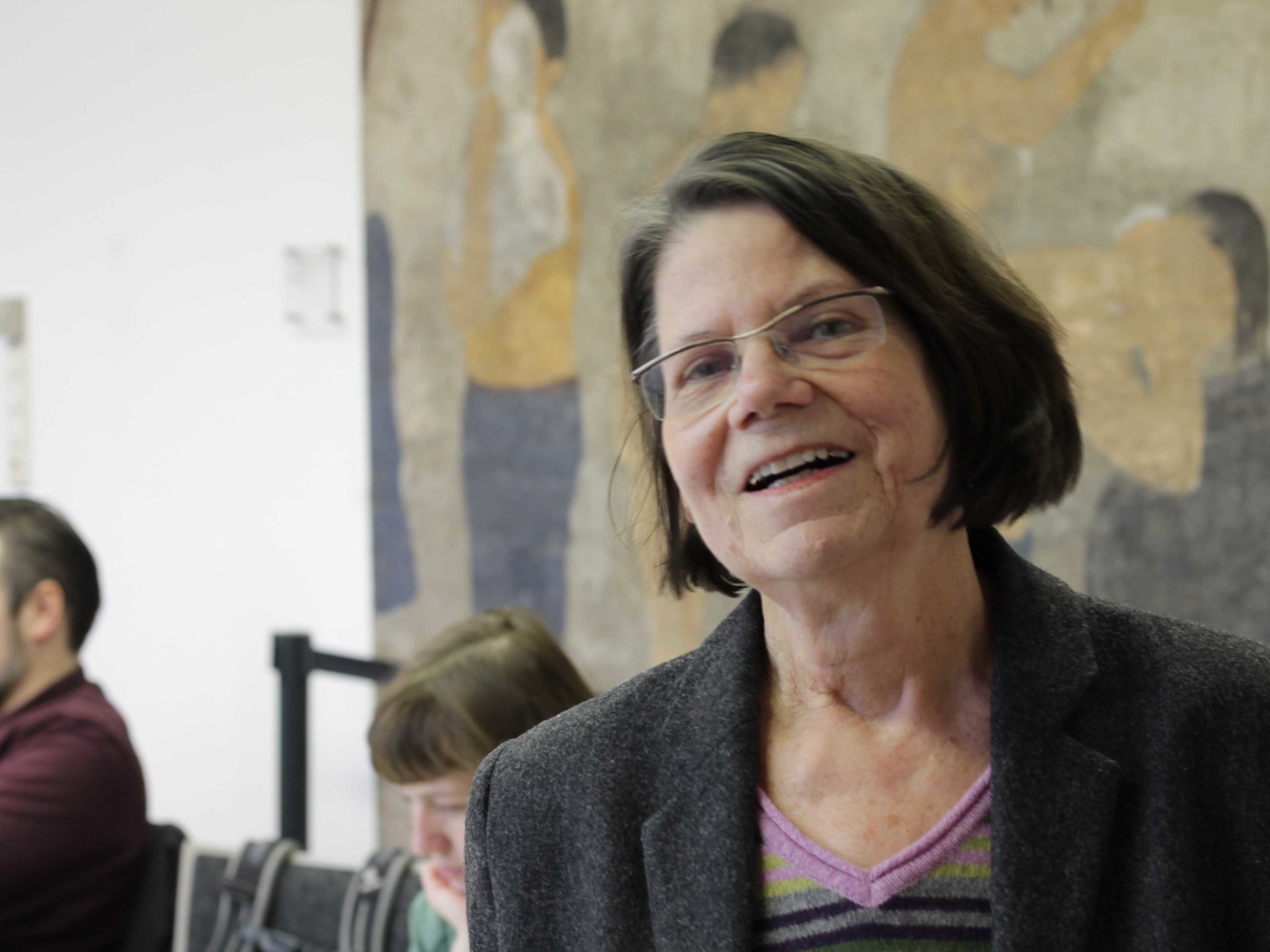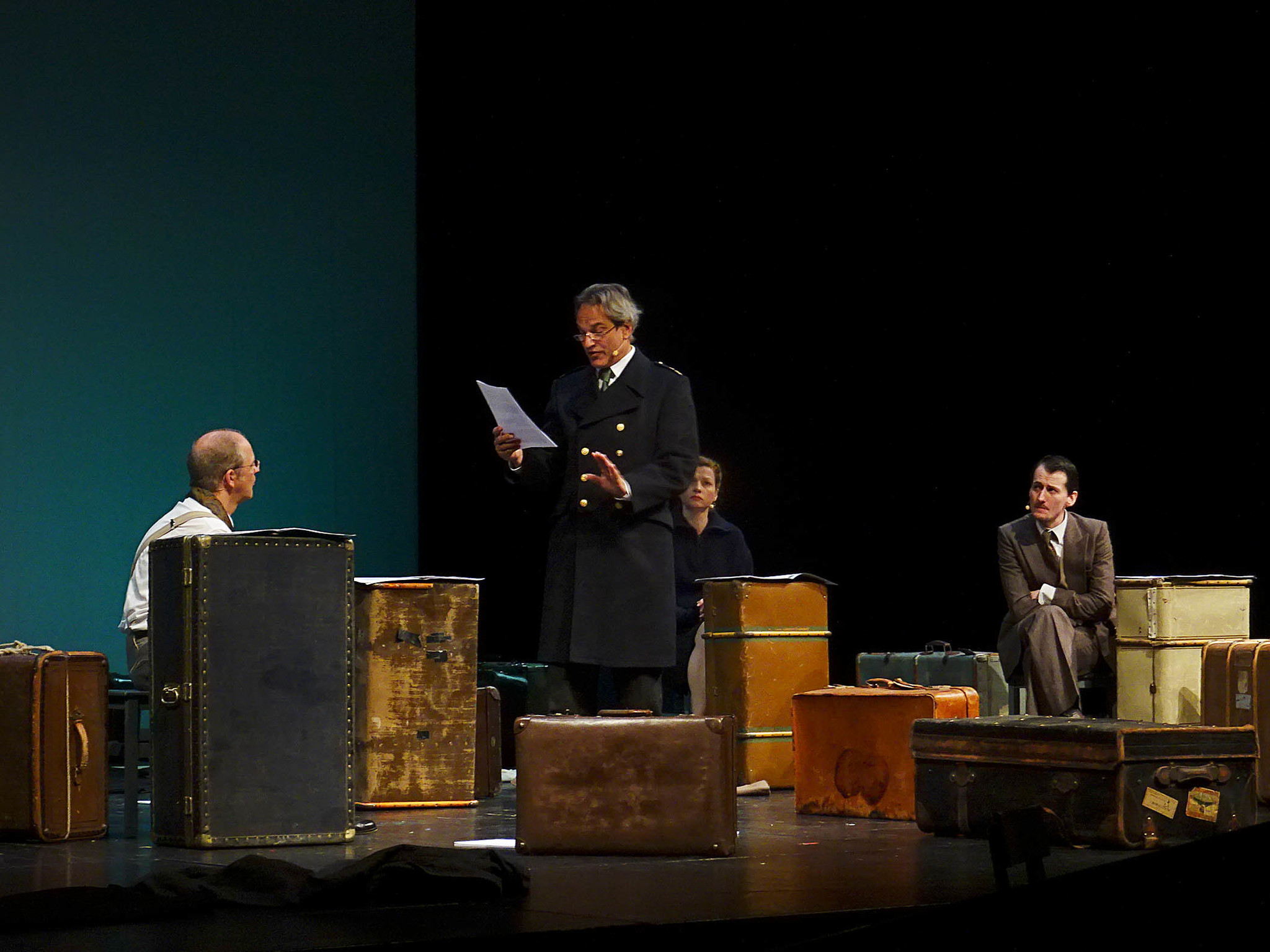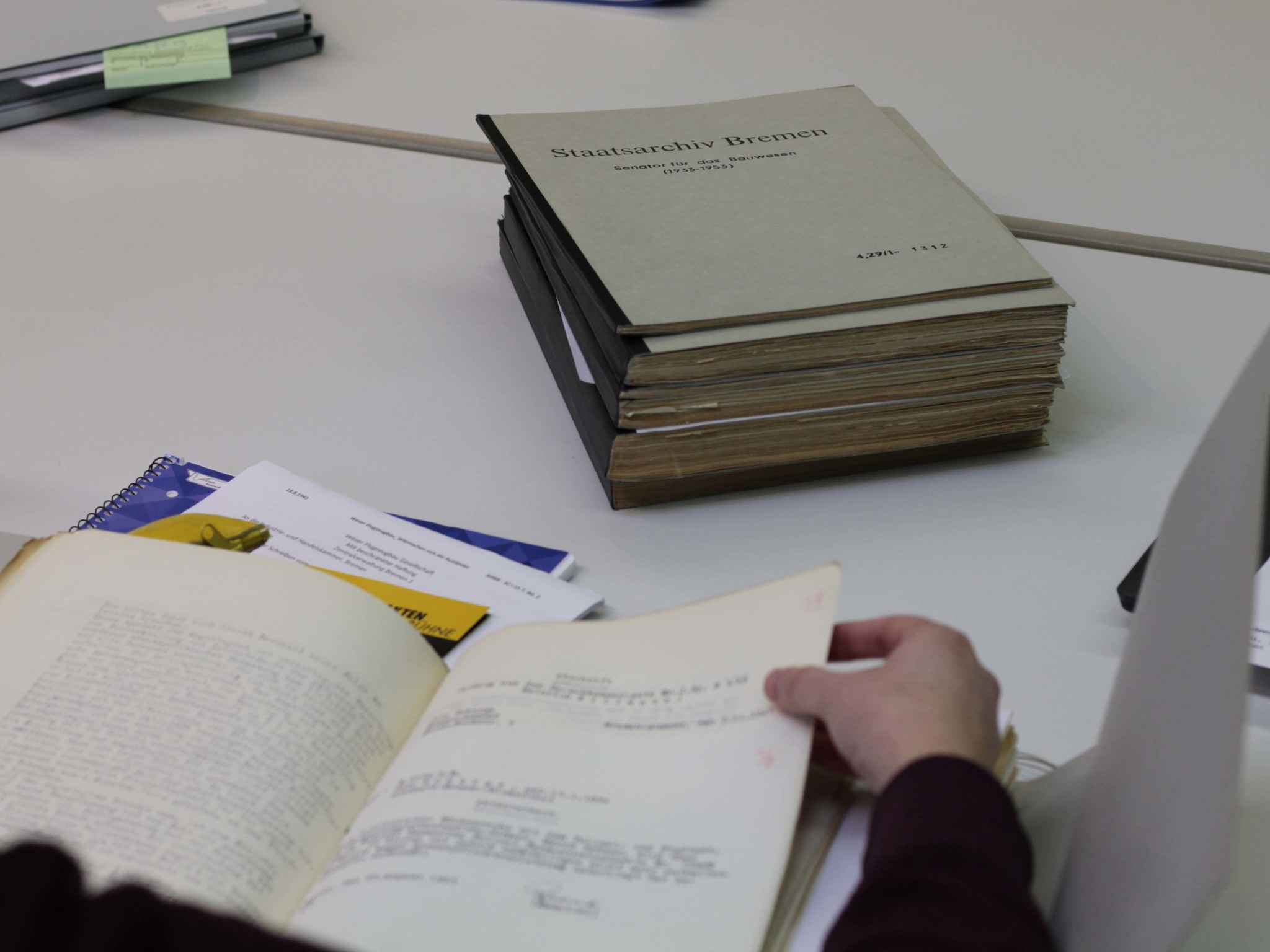
Photo: Hilka Baumann
Speaking files
Dr. Eva Schöck-Quinteros and her students make historical research accessible to a broad public.
The brief and curious phrase “reason for deportation: troublesome foreigner”, which the historian discovered in 2002 in some Bremen news at the beginning of the 1920s, inspired her to this idea: to convey historical research to a broad public by means of staged readings based on original sources. The focus should be the “century of extremes” – the 20th century. Thus, the project “From the Files to the Stage” was born in 2007. It has been realized in cooperation with the bremer shakespeare company and lets sources tell stories.
The fact that the students of her seminar at the time were not particularly keen on the idea of performing the texts on stage themselves seems to Eva Schöck-Quinteros today as a very fortunate turn of events. This is how the contact with Peter Lüchinger and the ensemble of the bremer shakespeare company came about. Since then, she and the actor have been working closely and intensively together. “From the Files to the Stage” has already received numerous awards; and in 2019, Eva Schöck-Quinteros was awarded the Federal Cross of Merit for her work.
A Best-Practice Example of Research-Based Learning
One of the things the bachelor and master students learn in the project is to mediate: to work scientifically and to write in a way that is understood by the general public.

Photo: Hilka Baumann
Lea Bussas and Lennart Edel are already participating for the second time. During the last semester, they conducted their own research in the files for the first time. The fact that their work on the Evian Conference and the odyssey of the St. Louis around 1938/39 would not go unnoticed, was what aroused their great interest in this special seminar. Their scientific contribution is published in the book “Keine Zuflucht. Nirgends.” (No refuge. Nowhere.) and will be made accessible to a wide audience in the staged reading of the same name at the bremer shakespeare company.

Photo: Dirk Lohmann / bsc
“Our research is not just published as a term paper, but as a publication with our own texts,” says Lennart Edel. “That you might discover something that other researchers are interested in,” was what motivated Lea Bussas to the recurrent collaboration. The two students are working on the current project with criminological intuition and are researching work education camps in the Bremen area. An accompanying volume will also be published for this project. For both of them, it is a good career opportunity to have already published something during their studies.
History on Stage
The students, however, do not write the stage version themselves. This has been Peter Lüchinger’s task since the beginning of the project. Eva Schöck-Quinteros provides the actor with the results of the relevant seminar – usually up to 1,000 pages of text.

Photo: Hilka Baumann
Their aspiration not to change the historical sources is an enormous challenge. To assemble the sources into a spellbinding dramaturgical version for the staged reading takes great skill. Eva Schöck-Quinteros is always impressed how Peter Lüchinger uses the uncommented original sources to create a story in a relatively short amount of time. By lending their voices to the sometimes very dry documents, the actors of the bremer shakespeare company bring history to life. And this goes down well: over 17,000 people have already watched the staged readings in recent years!
Experience Academic Research First Hand
The success of the project “From the Files to the Stage” is also being noticed nationwide. Various educational institutions have repeatedly requested the readings as guest performances. For school classes in particular, this form of theatre is a good way to make history more accessible during lessons – because there are fewer and fewer contemporary witnesses of National Socialism. Various workshops are also offered to accompany the readings.
Interested parties currently have the opportunity to see four different staged readings by the bremer shakespeare company, which have emerged from the seminars. Until April, there are performances in Bremen and Bremerhaven, as well as a guest performance in Berlin. The next premiere, in which Lea Bussas and Lennart Edel will also participate, will take place on June 3, 7:30 p.m. at the Bunker Valentin memorial.
More Information
For more information and performance dates visit the website Sprechende Akten or the bremer shakespeare company (in German only).